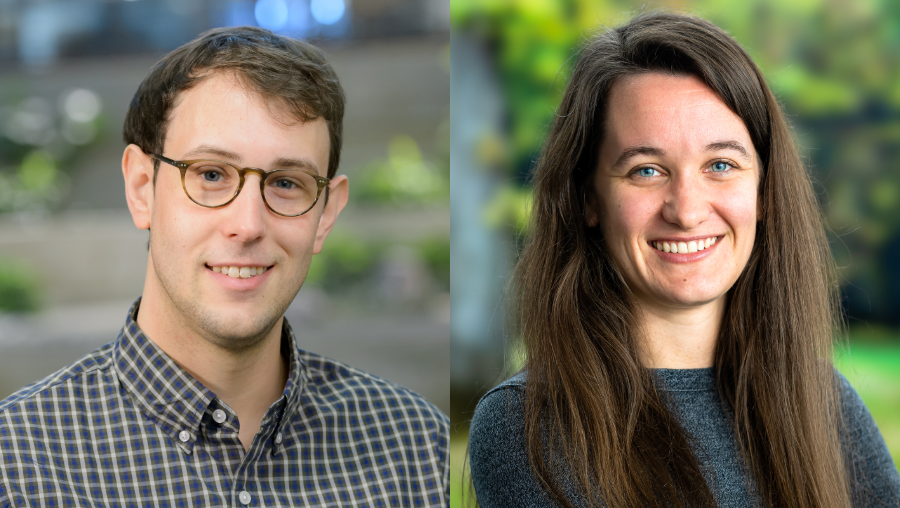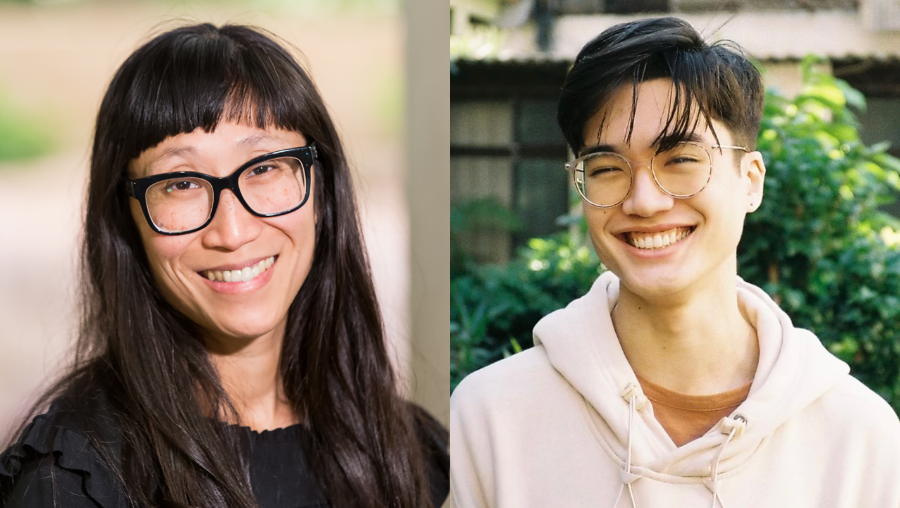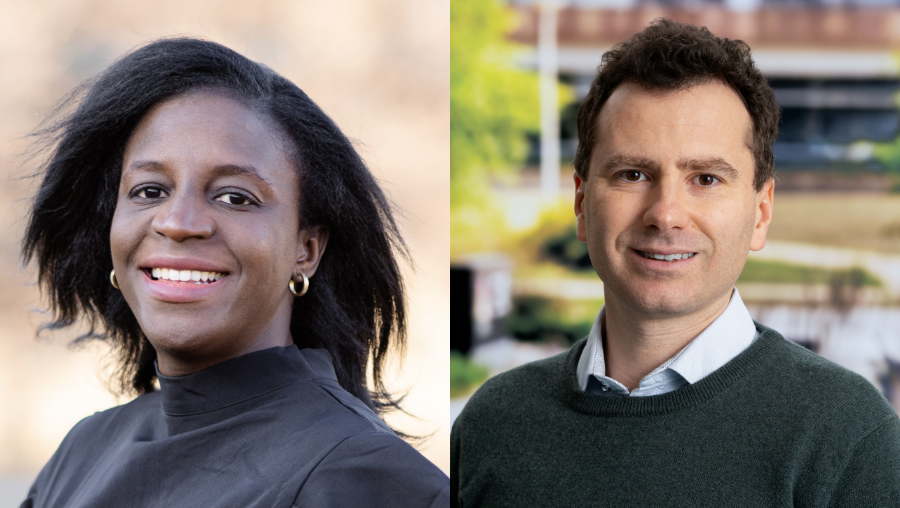
Kyle Felker, Assistant Computational Scientist
Kyle Felker’s first experiences with the ALCF were via a formative undergraduate internship in Argonne’s Mathematics and Computer Science division from 2010 to 2013, wherein he worked with Intrepid, the facility’s IBM Blue Gene/P supercomputer. This spawned a drive to pursue a career in intersectional computational science involving multiple scientific domains, all tied together by their use of high-performance computing.
Kyle returned to the ALCF in 2019 as a postdoctoral appointee. In 2021, he joined the lab’s Computational Science division as a catalyst for INCITE projects involving astrophysical simulations, AI, and/or plasma physics. His current research focus is on preparing machine learning models for fusion energy to be trained at scale on Aurora via the Early Science Program. On a day-to-day basis, Kyle places additional attention on maintaining software and documentation for the ALCF user community.
In 2023, Kyle was a part of two teams that received Impact Argonne awards: for helping organize the AI-driven Science on Supercomputers training series for students, and for supporting the winning team of the SC22 Gordon Bell Special Prize by building and testing scalable machine learning software on the Polaris supercomputer.
In addition, Kyle joined the INCITE Computational Readiness committee in 2023. In this role, he helps organize the technical evaluation processes for proposals seeking compute time on the largest ALCF and OLCF resources. Kyle also began serving as an Argonne lab practicum coordinator for the DOE’s Computational Sciences Graduate Fellowship. For the past two years, he has served on the ALCF Software Committee and the Supercomputing ML & HPC program committee.
Paige Kinsley, ALCF Education Outreach Lead
As the ALCF education outreach lead, Paige Kinsley works with staff to develop and lead the facility’s training and education activities. In this role, she is also the central point for all education, outreach, and training activities for the ALCF. Paige is committed to engaging underserved populations in STEM and increasing access to resources and knowledge about the power of science and high-performance computing to change the world.
In 2023, she co-led a team of 20 organizers and trainers from national labs, academia, and a non-profit to run the first pilot of the Introduction to HPC Bootcamp. As a team, they developed engaging and inclusive materials for a diverse set of students. Based on student feedback, the bootcamp increased their interest in HPC and national lab careers, and a number of them have applied for DOE internship programs.
Paige also stepped in as a founding member of the Women in HPC Chicago Chapter, in collaboration with Argonne and UIC staff. The Chicago WHPC chapter provides a network and resources for women and underrepresented people in HPC to make connections, develop support networks, and find opportunities in the field.
She also supported the continued development of tours at ALCF, with the goal of making Argonne and the ALCF more accessible to the future workforce. As part of her work to develop an inclusive culture at Argonne, in HPC, and beyond, she developed and led workshops on best practices in communications for Argonne staff.

Janet Knowles, Principal Software Development Specialist
Janet Knowles joined the ALCF Visualization and Data Analytics team as a principal software engineering specialist in 2014 after coming to the facility the previous year to work on special projects. Janet’s work has focused primarily on producing scientific visualizations with an emphasis on expanding the ALCF’s repertoire of high-quality rendering techniques. Her research interests include user interface design and interaction, immersive environments, 3D modeling, computer animation, and scientific visualization.
In previous years, Janet successfully spearheaded an effort to expand the ALCF visualization software toolset to include SideFX Houdini, a 3D procedural animation software. While Houdini is commonly used for video effects in the movie industry and increasingly, AAA-rated game development, it is just beginning to be leveraged for scientific visualization. In 2023, Janet continued her exploration of Houdini, taking advantage of its procedural-based model to support INCITE projects such as IonTransES, which was included as a DOE scientific highlight. She always enjoys contributing to the lab’s outreach programming, and in 2023, she was able to participate in Science Careers in Search of Women, Hour of Code, and the Argonne Open House.
Janet enjoys running marathons and ultramarathons, skiing, playing electric guitar (occasionally with her colleague Silvio Rizzi on keys), cooking and baking, and playing video games.
Sean Koyama, HPC Systems Administration Specialist
Sean Koyama joined the ALCF in 2022 as an HPC systems administration specialist. He is responsible for integrating scientific software stacks into the computing environments on ALCF supercomputers. His daily duties include the installation, testing, and support of crucial applications for scientific research. A significant focus of his work is leveraging the Spack HPC package manager to create automated frameworks for building site-customized programming environments.
In 2023, Sean deployed the scientific software stacks on Aurora and Aurora’s test and development system, Sunspot. He prioritized the installation of critical scientific applications on each supercomputer, enabling early science users to begin collecting data and optimizing applications. He also began a collaborative effort to build up an integrated programming environment on Aurora which is owned and configured by the ALCF. This approach is designed to be portable to other supercomputers such as Polaris, and its implementation would lead to a more uniform experience for users and more readily maintainable software environments.

Marieme Ngom, Assistant Computer Scientist
Marieme Ngom joined ALCF in May 2023 as an assistant computer scientist in the Data Science team. Since joining ALCF, Marieme’s research has been focused on implementing and testing scalable Gaussian Processes (GP) models for different applications including materials sciences on ALCF’s machines. In addition, Marieme has been working on assessing and enforcing the diversity, stability, and robustness of Argonne’s based ML models.
In parallel, Marieme helped organize the ALCF Hands-on HPC workshop and gave a tutorial on deep learning at the 2023 Argonne Training Program on Extreme-Scale Computing. Marieme also co-leads the CELS Technical Women group and has co-organized different meetups and activities geared towards CELS technical women
Filippo Simini, Computer Scientist
Filippo Simini joined ALCF in 2020 as a computer scientist in the Data Science team. His work focuses on helping develop, run, and evaluate HPC applications that include machine learning and artificial intelligence components, often combined with traditional science and engineering simulations. He served as a point of contact for Early Science Program (ESP) projects targeting the ALCF’s exascale system, Aurora, and collaborated with the ESP research teams to enable complex workflows combining simulation and learning components. Filippo is also helping to deploy, benchmark, and scale Graph Neural Network (GNN) models on ALCF resources and AI Testbed systems: GNN models are relevant to many scientific applications in which the system of interest can be represented as a (possibly time-varying) graph describing the binary interactions between the system’s components.
Filippo’s interests include generative modeling, privacy-preserving AI, and anomaly detection. These research themes are at the core of an ongoing collaboration between ALCF, Swift (Society for Worldwide Interbank Financial Telecommunication), and Kove, whose goal is to identify anomalous and fraudulent patterns in Swift’s data streams of financial transactions. The project has been selected as the winner of a Delivering Impact category within the Argonne Commercialization Excellence Award program in 2023. Filippo also served as a team mentor at INCITE Hackathons and co-organized, presented, and provided support at various ALCF training events.